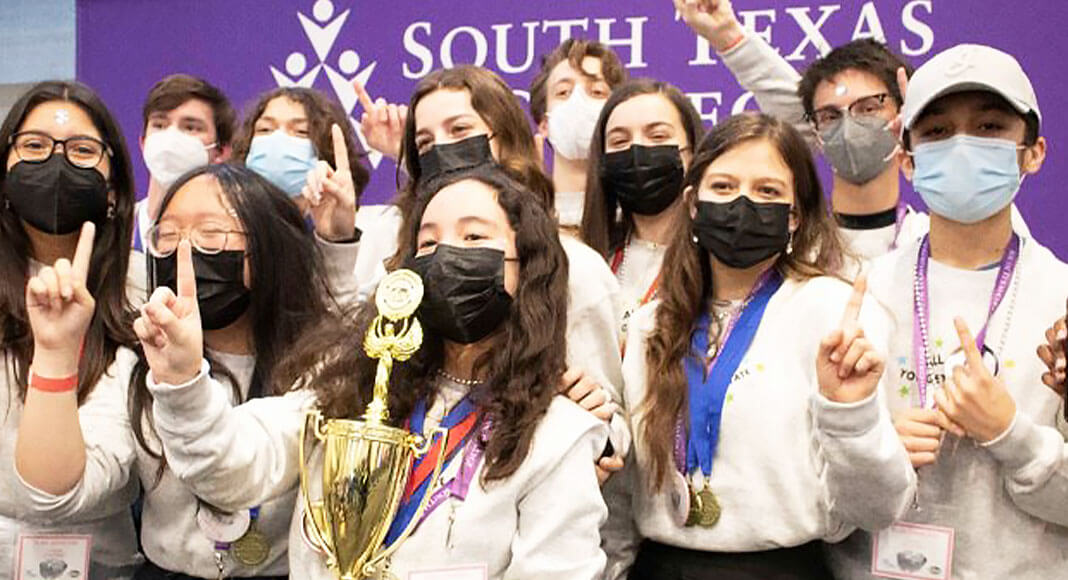
Texas Border Business
One McAllen ISD high school team will join three middle school teams as all four head to the state Science Olympiad.
Lamar Academy plus Fossum Middle School, Cathey Middle School and De Leon Middle School qualified following their performance at the 16th annual Regional Science Olympiad held at South Texas College’s Pecan Campus Feb. 26.
The Lamar Academy team won the High School Division C championship to qualify. Fossum finished in a first-place tie in the Middle School Division B competition but ended up second due to a tiebreaker. Cathey took fifth and De Leon finished sixth. For the first time, all six McAllen ISD middle schools competed in the Regional Olympiad.
They will compete at the State Science Olympiad April 22-23 in College Station. The top three teams in Division C plus the top six in Division B advanced to state.
The Science Olympiad coaches include Jose Luis Gomez (Lamar), Armando Gallardo (Lamar), Danielle Zamora (Fossum), Amy Gonzalez (Fossum), Vanessa Casso (Cathey), Manuel Vizcaino (Cathey), Maria Villarreal (De Leon) and Maria Franco (De Leon).
The Olympiad consists of interscholastic competitions for students in grades 6-12 centered on events in Science, Technology, Engineering and Math (STEM).
Science Olympiad is a nonprofit organization developed more than 30 years ago to improve the quality of science education for students. Hosted by the Physical Science Department at South Texas College, the event is a way to provide recognition of outstanding achievement in science education by both students and teachers from all 50 states competing at the regional, state and national level.
“The Science Olympiad has hands-on events where students build some of their projects at home and test them here,” Dr. Ludivina Avila, STC Chemistry Instructor and Regional Event Coordinator, said. “They also get the opportunity to be on a college campus and meet different instructors and students in the STEM fields from STC.”
The Olympiad includes quiz events in Anatomy and Physiology plus Rocks and Minerals. There are also hands-on events like Wright Stuff where students build and fly homemade aircraft or the Bridge event which tested each team’s ability to build a structurally efficient but strong bridge.
Events are mostly hands-on and ranged from mouse trap vehicles, to building a hydrometer for the food science event. Some events, like forensics, involve a fictionalized crime scene where students try different experiments in order to solve the case.
















